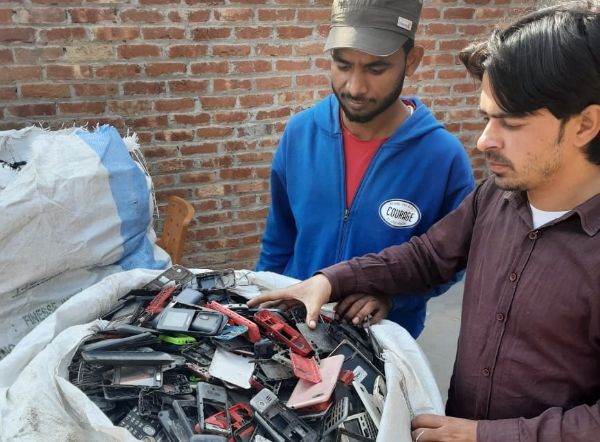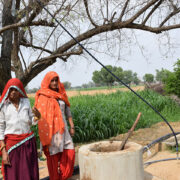Environmental Sustainability
We work with communities for environmental sustainability and climate change adaptation. We work in and with the communities, supporting efforts to build resilience through agricultural practices, water management, and livelihood diversification to:
- Create awareness towards affordable and clean energy
- Encourage sustainable agricultural practices
- Promote and establish nutritional gardens
- Create better solid and e-waste management systems
- Support the use of renewable energy sources
Agriculture
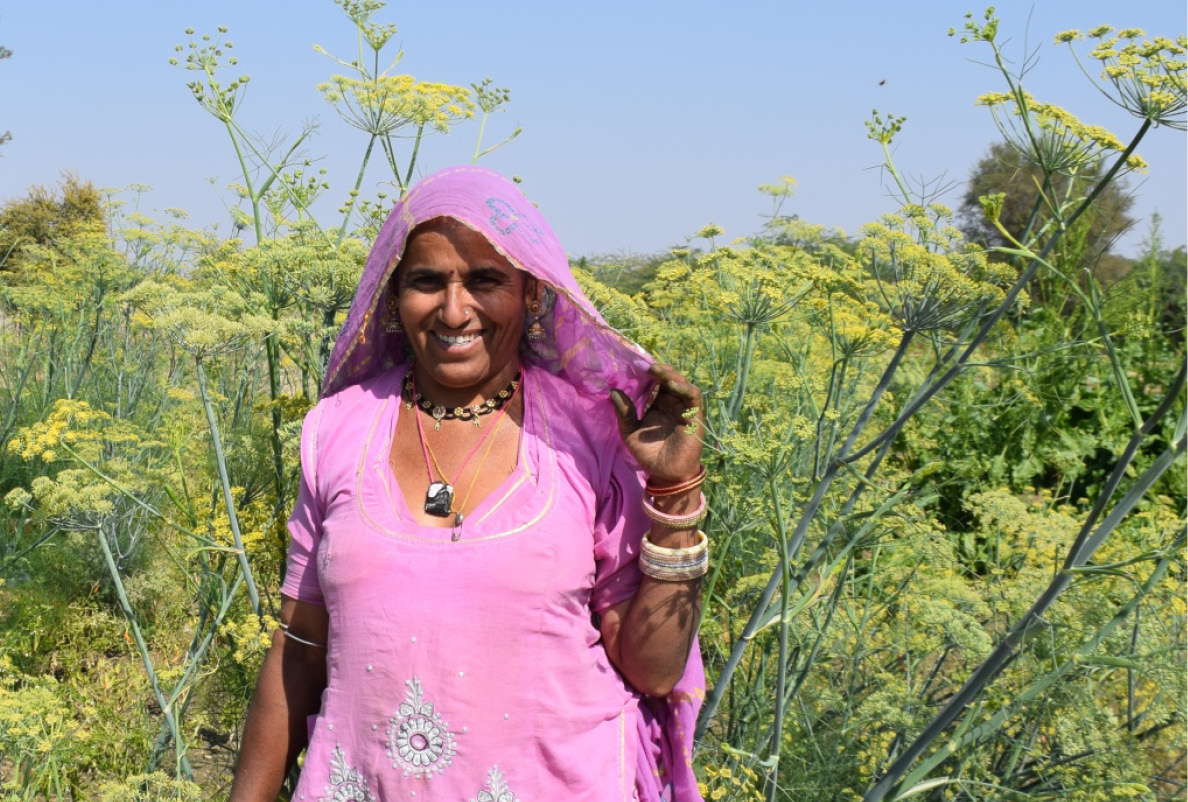
Our rural community development projects focus on improving livelihood and promoting environmental sustainability. We work with both men and women farmers through Farmers’ clubs and Self Help Groups. The group members receive training on sustainable agricultural practices and animal husbandry to improve productivity, income and, thereby, quality of life. We address the problem of food and nutritional security through our agriculture-related initiatives while promoting sustainable farm-based livelihoods. The aim is to improve efficiency in production systems, lower input costs, increase per capita output and ensure food and nutritional security at the household level.
Across projects, we promote the establishment of pesticide-free nutritional gardens. In year 2022-23, people in communities established more than 59,313 such gardens.
Planting Trees
Tree plantation actions are one of the direct ways to offset the detrimental impacts of climate change. However, planting saplings and nurturing the growth of trees depends on land availability, water requirement, funding, and numerous other factors.
In 2022-23, we planted 88,088 saplings, adding up to more than a million trees planted across the project since 2014. In HPPI, every year, almost all projects plant trees; this goes for educational projects and projects dedicated to environmental sustainability. Along with planting saplings, we include training in caring for the trees for people in all age groups.
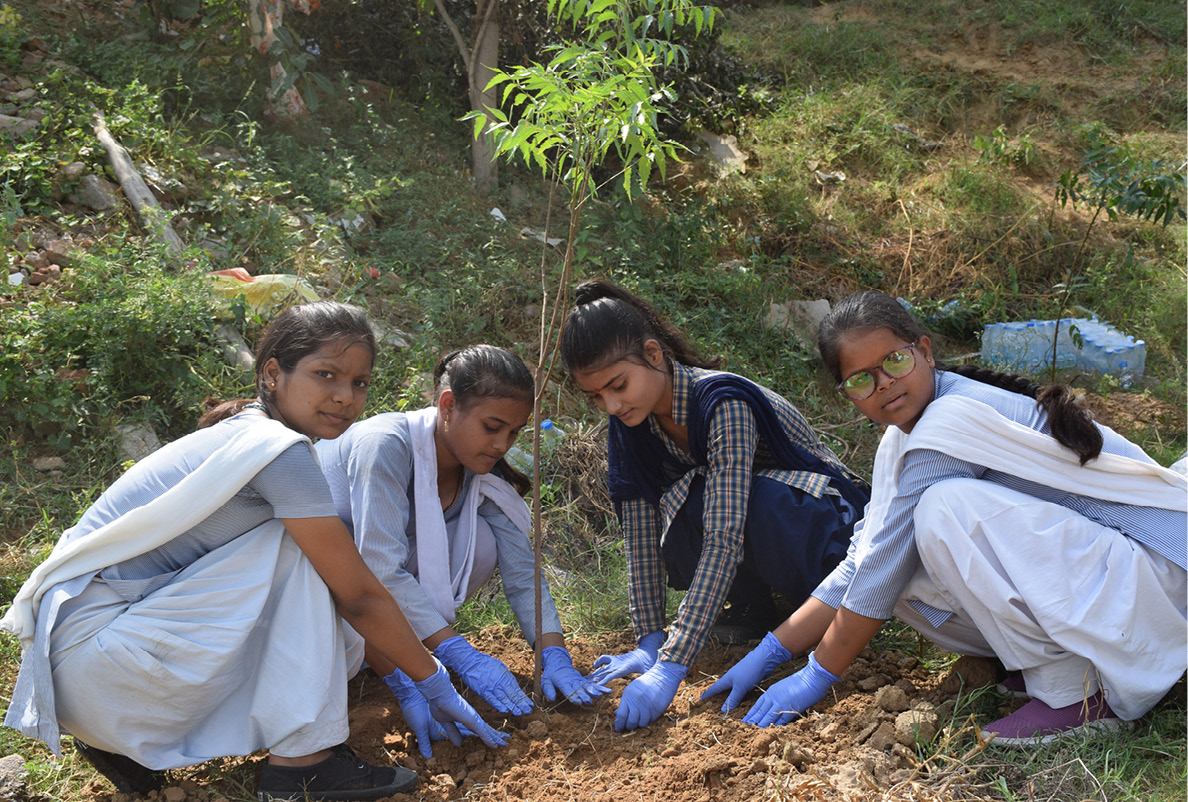
Sustainable Energy – Biogas and Solar Energy
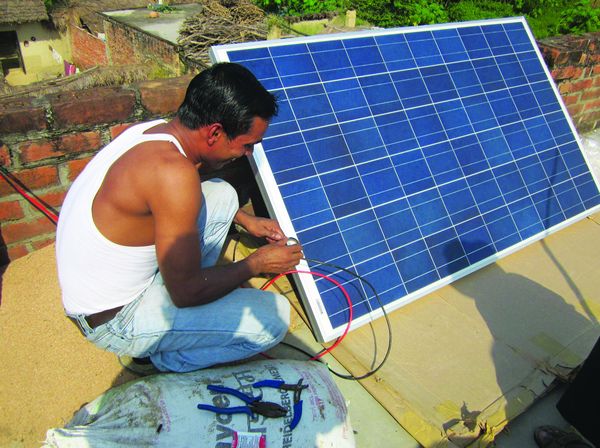
Increased use of renewable sources of energy has been an important area of action towards efforts to reduce carbon footprint. Since 2010, we have promoted the use of biogas in communities. As a service provider, we continue to support the construction and operational assistance of biogas plants in Rajasthan. In the year 2022-23, with the construction of 165 new plants, the total number of biogas plants reached 1465. Biogas not only contributes to reducing the carbon footprint, but also saves women’s time in collecting firewood, substantially reduces the smoke in the kitchen, and reduces the occurrence of respiratory diseases among women and children.
The initiative has also contributed to the improvement of soil health on more than 300 hectares of land using bio-slurry, a bi-product of the anaerobic digestion process of the biogas plants.
We also promote the use of Solar energy wherever possible in various forms; for lightning homes, street lights, agricultural water pumps, and water filtration.
Solid Waste Management
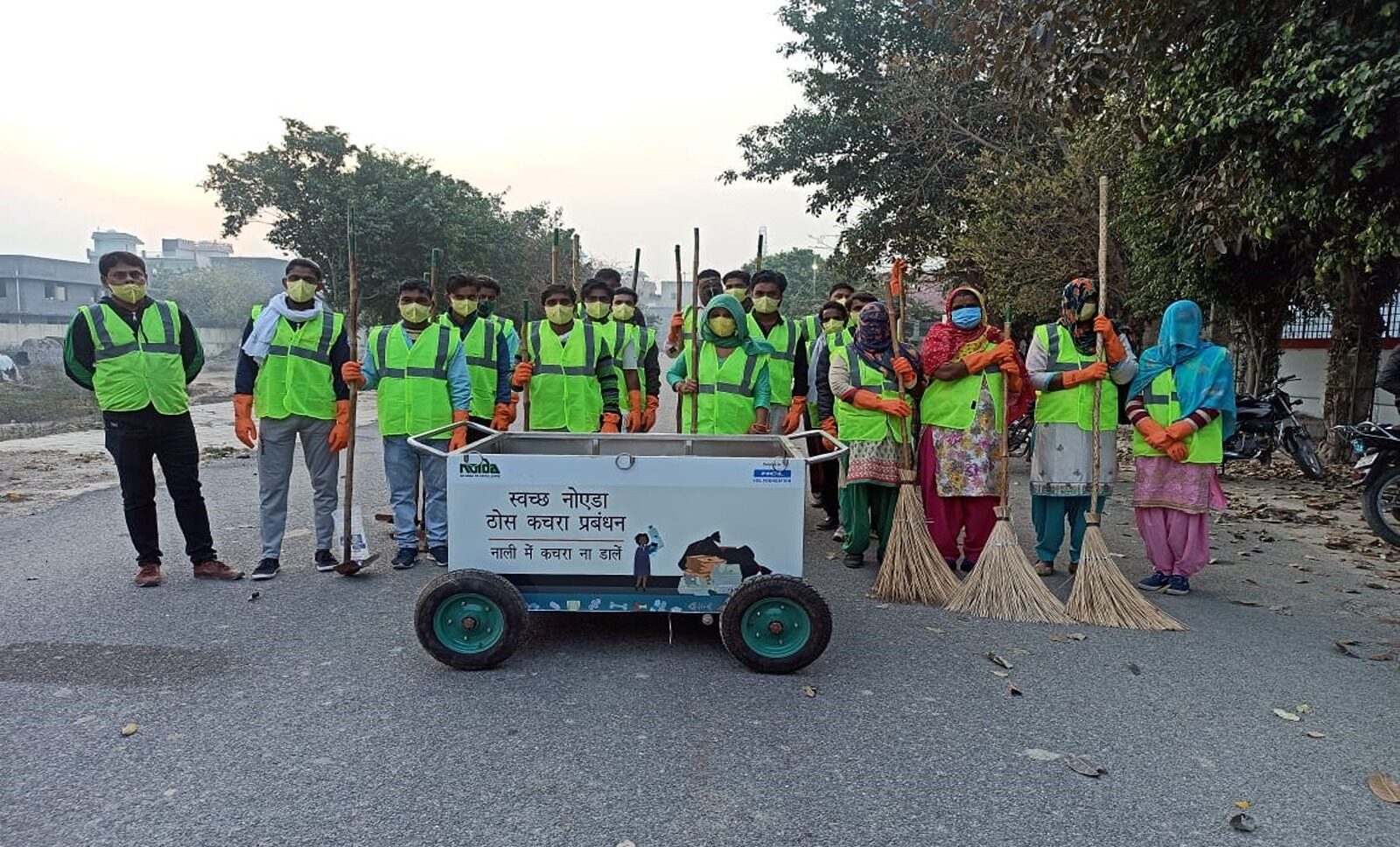
Solid waste management promotes environmentally sound waste segregation and disposal practices. It helps to reduce greenhouse emissions through food and other organic waste while also inducing behavioural changes in communities towards a more responsible waste disposal mechanism and a clean environment.
Solid waste management in 20 villages in Noida, Uttar Pradesh, in close cooperation with the local municipal body, is one such example. During 2020-21, the project successfully secured the collection and proper disposal of more than 680 tons of wet waste and 51 tons of dry waste from these villages. It also formed one working group in each village to ensure a progressive behavioural change in the communities toward waste segregation and disposal practices.
E-Waste Management
The early e-waste initiatives, more than ten years ago, included collecting mobile phones. We started by collecting mobile phones from small repair shops. Today, we work in partnership with 38 e-waste aggregators in 14 districts across five states – Uttar Pradesh, Uttarakhand, Jharkhand, Rajasthan and Haryana.
In 2022-23, we collected 152 tons of e-waste. The long-term perspective of this project is to render e-waste collection as a sustainable business model for these aggregator entities leading to economic benefits and ecological rejuvenation, securing that these hazardous wastes do not end up in landfill sites.
